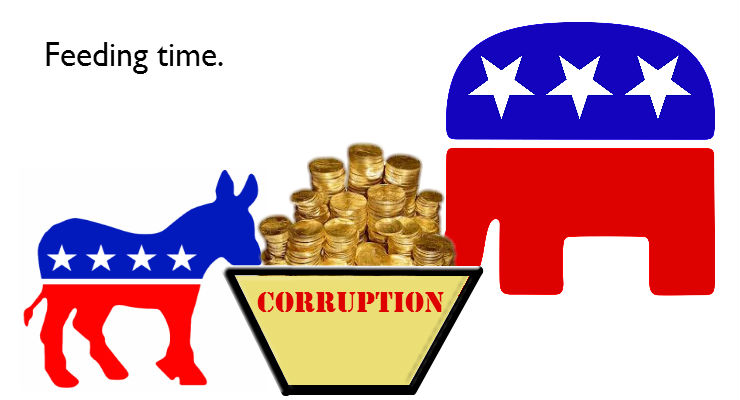
Money politics has long dominated American politics, but the scale of the problem has gotten much worse since the Supreme Court made its infamous 2010 ruling known as: Citizens United. The latest news on this front comes from a really interesting article by Stephen M. Walt at Foreign Policy Magazine:
Corruption is inherently inefficient. Instead of resources going where they are most needed, they get diverted into bribes, payoffs, kickbacks, and other shady arrangements. And when the wealthy and powerful use connections to get jobs or contracts (or to get their kids into college), that means that more deserving and talented people get excluded and less qualified people end up in positions of authority. The more common such practices become, the more honest and law-abiding people will be tempted to follow suit just to keep up. And once corruption becomes endemic in a society, rooting it out becomes difficult if not impossible.
Making matters worse is the demand for regulation that corruption tends to foster. When more and more people cheat and trust erodes, responsible officials will try to corral corruption by imposing more rules, laws, oversight procedures, and regulatory mechanisms. One sees this phenomenon everywhere—including at universities—where efforts to prevent all sorts of misconduct are making it nearly impossible to do anything efficiently. But the taproot of this problem is the fear that we cannot trust anyone to act properly without strict guidance and suffocating levels of bureaucratic oversight. Sadly, such fears are far from groundless.
Foreign Policy has the complete article. Also visit Democracy Chronicles main sections on Money Politics and American Democracy.
Leave a Reply